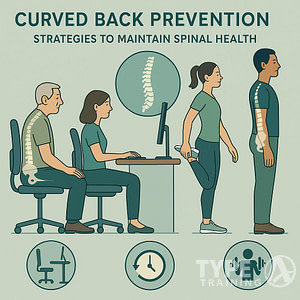The holiday season brings joy, festivities, and delicious food. But it can also bring unwanted weight gain.
You can enjoy the holidays without packing on extra pounds by making smart choices and staying active. It’s possible to savor seasonal treats while still prioritizing your health and wellness goals.
With some planning and mindful strategies, you can navigate holiday parties and family gatherings without derailing your progress.
Developing healthy holiday habits doesn’t mean depriving yourself. Instead, it’s about finding balance and making intentional decisions.
Popular posts:
By focusing on nutrient-dense foods, staying hydrated, and incorporating regular exercise, you can keep your weight stable while fully participating in holiday cheer.
Key Takeaways
- Balance indulgences with nutritious choices and portion control
- Stay active with regular exercise and fun holiday activities
- Plan ahead for parties and gatherings to avoid overindulging
Understanding Holiday Weight Gain
Holiday weight gain is a common phenomenon that affects many people during festive seasons. It often results from a combination of increased calorie intake and reduced physical activity.
The Science of Overeating and Metabolism
Your body’s metabolism plays a crucial role in weight management.
During the holidays, you might consume more calories than usual, overwhelming your metabolic processes.
Overeating triggers a surge in blood sugar levels, prompting your body to release insulin. This hormone helps store excess energy as fat, contributing to weight gain.
Your metabolism can slow down when you consistently overeat, making it harder to burn calories efficiently. This effect can last beyond the holiday season, potentially leading to long-term weight gain.
Common Causes of Holiday Overindulging
Social gatherings and festive events often center around food, increasing your opportunities to overeat.
Stress and emotions associated with the holidays can also trigger comfort eating.
Traditional holiday foods are often high in calories, fat, and sugar. You might find it challenging to resist these tempting treats, leading to excess consumption.
Alcohol consumption typically increases during holidays. Alcoholic beverages are calorie-dense and can lower your inhibitions, making it easier to overindulge in food.
Busy schedules during the holiday season may disrupt your regular exercise routine. This reduction in physical activity, combined with increased calorie intake, can contribute to weight gain.
Strategic Eating During the Holidays
The key to enjoying holiday meals while maintaining a healthy weight lies in mindful choices and smart eating strategies.
By focusing on portion control, nutritious options, and intentional eating habits, you can savor festive flavors without overindulging.
Mastering Portion Control
Use smaller plates to naturally reduce portion sizes. Fill half your plate with vegetables, a quarter with lean protein, and the remaining quarter with whole grains or starchy sides.
When faced with holiday favorites like mashed potatoes or stuffing, take a small spoonful to satisfy cravings without excess.
Eat slowly and savor each bite. This allows your body time to register fullness, preventing overeating.
Try putting your fork down between bites or engaging in conversation to pace yourself.
Consider using the “rule of one” at buffets. Take only one trip and choose a single serving of each dish you’d like to try. This helps limit overall intake while still enjoying variety.
Making Healthy Food Choices
Prioritize nutrient-dense options. Fill up on colorful salads, roasted vegetables, and lean proteins before indulging in richer dishes.
These foods provide essential nutrients and help you feel satisfied with smaller portions of higher-calorie items.
Bring a healthy dish to share at gatherings. This ensures you have a nutritious option and allows others to enjoy it too.
Ideas include a fruit platter, veggie sticks with hummus, or a quinoa salad.
Stay hydrated by drinking water throughout the day. Sometimes thirst can be mistaken for hunger. Have a glass of water before meals to help control appetite.
Choose healthier cooking methods when preparing holiday dishes.
Opt for roasting, grilling, or steaming instead of frying. Use herbs and spices for flavor rather than excess butter or cream.
Navigating Holiday Meals Mindfully
Eat regular meals leading up to holiday events. Skipping meals to “save calories” often backfires, leading to overeating later.
Have a light, protein-rich snack before parties to curb hunger.
Practice mindful eating at gatherings.
Focus on the taste, texture, and aroma of your food. This enhances enjoyment and helps you eat less while feeling more satisfied.
Be selective with your indulgences. Choose the treats you truly love and savor them in moderation. Skip items that aren’t special or particularly appealing to you.
Balance richer meals with lighter ones. If you know you’ll have a big dinner, opt for a lighter breakfast and lunch. This helps maintain overall calorie balance without feeling deprived.
Maintaining Physical Activity
Regular exercise is crucial for managing weight during the holidays. Staying active helps burn extra calories and reduces stress, making it easier to avoid overindulging.
Integrating Exercise into Holiday Activities
Turn holiday traditions into opportunities for movement. Go ice skating with family or friends as a fun winter activity that also provides cardio exercise.
Take brisk walks to view neighborhood light displays, combining sightseeing with physical activity.
Organize active gift-wrapping sessions where you do squats or lunges between presents. Dance to festive music while decorating or cooking. These small bursts of activity add up throughout the day.
Create new traditions that involve exercise, like a family flag football game on Thanksgiving or a Christmas morning jog.
Encourage relatives to join you for pre-meal walks to build anticipation and burn calories.
Yoga and Meditation for Stress Reduction
Practice yoga to maintain flexibility and strength during busy holiday periods.
Start your day with a 10-minute yoga routine to energize your body and calm your mind.
Try chair yoga at work or while traveling to reduce tension.
Focus on simple stretches and breathing exercises to relieve stress in any setting.
Incorporate short meditation sessions into your daily routine.
Take 5 minutes before bed to practice mindfulness, helping you unwind and improve sleep quality.
Use guided meditation apps during holiday travel or while waiting in long shopping lines. This helps manage stress and reduces the urge to stress-eat.
Healthy Holiday Recipes
Preparing nutritious holiday dishes can help you maintain a balanced diet during festive seasons. Try these ideas to create delicious meals that align with your health goals.
Swapping Ingredients for Healthier Alternatives
Replace butter with mashed avocado or Greek yogurt in baked goods for a creamy texture and added nutrients. Use whole wheat flour instead of white flour to boost fiber content.
Swap sugar for natural sweeteners like mashed bananas or applesauce in desserts. These alternatives add sweetness while providing vitamins and minerals.
Try cauliflower rice as a low-carb substitute for traditional rice in stuffings or side dishes. It’s rich in vitamins and adds a light, fluffy texture to your meals.
Use low-fat milk or unsweetened almond milk in place of heavy cream in sauces and soups. This reduces calories without compromising flavor.
Whole Foods-Based Festive Dishes
Create a colorful salad with mixed greens, pomegranate seeds, and roasted butternut squash. Top with a light vinaigrette for a refreshing starter.
Roast a turkey breast with herbs and lemon for a lean protein option. Serve with a side of steamed green beans and roasted sweet potatoes for a balanced plate.
Prepare a quinoa stuffing with diced apples, cranberries, and pecans. This protein-packed alternative to bread-based stuffing offers a delightful mix of textures.
For dessert, bake cinnamon-spiced pears topped with a sprinkle of crushed walnuts. This simple yet elegant dish satisfies your sweet tooth without excess sugar.
Behavioral Techniques for Weight Control
Adopting effective behavioral strategies can help you maintain a healthy weight during the holiday season. These techniques focus on mindful eating and managing food-related urges.
The Importance of Mindfulness and Accountability
Mindfulness involves paying attention to your eating habits and food choices.
Practice eating slowly and savoring each bite. This allows you to recognize feelings of fullness more easily.
Keep a food diary to track what you eat. This increases awareness of your eating patterns and helps identify areas for improvement.
Share your goals with a friend or family member for added accountability.
Set realistic weight maintenance goals for the holiday season. Reward yourself with non-food treats when you achieve these milestones.
Avoiding Temptations and Managing Cravings
Plan ahead for social gatherings and holiday meals. Eat a small, healthy snack before events to curb overeating. Choose smaller plates to control portion sizes.
When faced with tempting foods, wait 10 minutes before indulging. This delay often reduces the intensity of cravings.
Keep healthy snacks readily available. Stock your kitchen with fresh fruits, vegetables, and lean proteins.
Develop strategies to cope with stress without turning to food.
Try deep breathing exercises, short walks, or calling a friend when you feel overwhelmed.
Limit alcohol consumption, as it can lower inhibitions and lead to overeating. Opt for water or unsweetened beverages instead.
Advanced Strategies for Weight Management
Maintaining a healthy weight during the holidays requires planning and discipline.
Two effective approaches can help you stay on track.
Intermittent Fasting During the Holidays
Intermittent fasting can be a powerful tool for weight management during festive periods.
This approach involves alternating between fasting and eating windows.
The 16/8 method is popular. You fast for 16 hours and eat within an 8-hour window.
For example, you might eat between 12 PM and 8 PM, then fast until noon the next day.
Another option is the 5:2 diet. You eat normally for five days a week and restrict calories to 500-600 on two non-consecutive days.
Fasting can help control calorie intake and improve insulin sensitivity.
It’s crucial to maintain a balanced diet during eating periods and stay hydrated throughout the day.
The Role of Regular Weigh-Ins
Regular weigh-ins can be an effective strategy for weight management during the holidays.
Aim to weigh yourself at the same time each day, preferably in the morning after using the bathroom.
Keep a log of your weight to track trends over time. This practice increases awareness of how your eating habits affect your weight.
If you notice an upward trend, it’s a signal to adjust your diet or increase physical activity.
Remember that daily fluctuations are normal due to factors like water retention and food intake.
Use a digital scale for accuracy. Consider setting a “red line” weight that, if reached, triggers more stringent dietary measures.
Handling Leftovers and Parties
Holiday gatherings often lead to excess food and temptations. Managing leftovers wisely and navigating party buffets can help you maintain your health goals during the festive season.
Smart Decisions with Leftovers
Store leftover treats out of sight to reduce temptation.
Freeze portions for later enjoyment, spreading holiday flavors throughout the year.
When reheating, use smaller plates to control serving sizes.
Consider transforming leftovers into healthier meals. Turn roast turkey into a nutritious salad or soup. Use leftover vegetables in omelets or stir-fries.
Share excess food with friends, family, or local shelters. This reduces waste and limits your exposure to high-calorie foods.
Staying on Track at Holiday Parties
Eat a small, protein-rich snack before attending parties to curb hunger. This helps you make better choices at the buffet table.
Survey all food options before filling your plate. Choose vegetables, lean proteins, and small portions of your favorite treats.
Bring a healthy dish to share, ensuring you have a nutritious option available.
Stay hydrated with water or unsweetened beverages.
Alternate alcoholic drinks with water to reduce calorie intake and maintain control.
Focus on socializing rather than eating. Position yourself away from the food table to minimize mindless snacking.
Frequently Asked Questions
Holiday weight gain is a common concern. These questions address key strategies for maintaining a healthy weight and mindset during festive periods.
What strategies can help prevent weight gain during the holidays?
Portion control is crucial. Use smaller plates and take modest servings.
Focus on filling half your plate with vegetables.
Stay hydrated by drinking water before and during meals. This can help curb overeating.
Maintain regular exercise routines. Aim for at least 30 minutes of physical activity daily.
Try family walks after meals or active games with loved ones.
What is the average weight gain during holiday season, and how can it be managed?
Most people gain 1-2 pounds during the holidays.
To manage this, practice mindful eating. Savor each bite and eat slowly. This allows your body to recognize fullness cues.
Plan ahead for indulgences. If you know you’ll have a large dinner, eat lighter meals earlier in the day. Balance is key.
Are there effective methods to quickly lose weight gained over the holidays?
Rapid weight loss isn’t recommended.
Instead, focus on returning to healthy habits.
Increase your vegetable and fruit intake. Reduce processed foods and sugary drinks.
Add strength training to your exercise routine. Building muscle can boost metabolism. Aim for 2-3 sessions per week.
What are the main causes of weight gain over short vacation periods like a week or two?
Increased calorie intake is the primary cause.
Holiday foods are often high in sugar and fat.
Reduced physical activity also contributes. Many people break from their regular exercise routines.
Stress can lead to emotional eating.
Practice stress-management techniques like deep breathing or meditation.
Is holiday weight gain a permanent issue or can it typically be reversed?
Holiday weight gain can be reversed with consistent effort.
Return to your regular eating patterns.
Resume your exercise routine as soon as possible.
Set realistic goals. Aim to lose 0.5-1 pound per week. This pace is sustainable and healthy.
How can one maintain a health-focused mindset while enjoying holiday feasts?
Focus on enjoyment rather than restriction. Choose your favorite treats and savor them in moderation.
Don’t label foods as “good” or “bad.”
Practice gratitude for the occasion and company. This can shift focus from food to meaningful connections.














